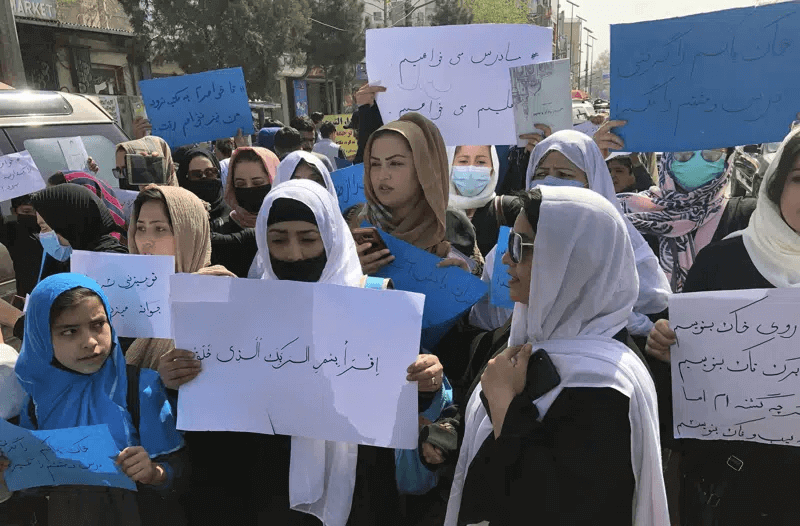The UN is ready to take the “heartbreaking” decision to withdraw from Afghanistan in May if it cannot convince the Taliban to permit local women to work for the organisation, as stated by the head of the UN Development Program (UNDP).
According to UNDP chief Achin Steiner, who spoke to the Associated Press (AP), UN representatives are in talks with the Afghan government in the hopes that it will make exceptions to a recent decree that forbids local women from working for the UN.
Overview
Earlier this month, the Taliban announced that Afghan women will not be allowed to work for UN missions and agencies. The UN Assistance Mission in Afghanistan (UNAMA) employs 3,900 people, of which 600 are Afghan women, and 200 are from other nations.
Subsequently, when the Taliban prevented female employees in the eastern province of Nangarhar from reporting to work, a senior UN official told Reuters that the UN had instructed all workers not to come to the office for 48 hours due to concerns regarding their safety.
The UN said it was ready to take the “heartbreaking” decision to pull out of Afghanistan in May if Taliban do not allow Afghan women to work for the organisation.https://t.co/ixWFzVILyu
— Dawn.com (@dawn_com) April 19, 2023
According to UN Secretary-General António Guterres, the prohibition violates the Taliban’s international human rights duties. He said that UNAMA’s women personnel were crucial to its operations, which included providing life-saving supplies and assistance, and demanded the ban be immediately revoked.
The UN statement said that several UN national female staff have already faced limitations on their mobility, including harassment, intimidation, and detention.
Taliban’s Crackdown on Women’s Rights
The Taliban have imposed harsh measures on women since taking over the country in 2021, as US and NATO forces pulled out of Afghanistan after two decades of war.
Over the past few months, girls were banned from attaining education beyond the sixth grade, and women were banned from attending universities. Further, Afghan women have been prohibited from travelling long distances without a male chaperone, working, acquiring a driver’s licence, and ordered to cover their faces from head to toe in public places.
The Taliban also announced that it would undertake surveillance checks to keep women out of parks and gyms.
At least 85% of Afghanistan is projected to be in poverty, a recent report by the UN concluded.
— Middle East Eye (@MiddleEastEye) April 19, 2023
Any reduction in international aid will worsen the economic situation of Afghanistan and would result in extreme poverty that would perpetuate for decadeshttps://t.co/rDCfADqkNJ
UN’s Decision
According to Steiner, the entire UN system functioning in Afghanistan must take a step back and reassess its capacity to work in circumstances where “it’s not about negotiating fundamental principles, human rights.”
A UN report released on Tuesday shows that the Taliban takeover has led to economic collapse by 20.7 percent with very modest signs of economic recovery. At least 85 percent of Afghanistan is projected to be in poverty, with an estimated population of 40 million.
Restrictions on international banking, a halt in humanitarian aid, and climate change all partly explain the nation’s poverty and poor economy. Steiner stated the report indicates that the country, with its economy flailing, desperately needs more women working.
More people are in need due to the country’s economic issues, but the UN has determined that human rights are non-negotiable, and it will reduce its presence in May if the Taliban does not make concessions.
Stéphane Dujarric, a spokesperson for the UN Secretary-General, affirmed that the UN is continuing to “push back on this counterproductive, to say the least, edict by the authorities.”

